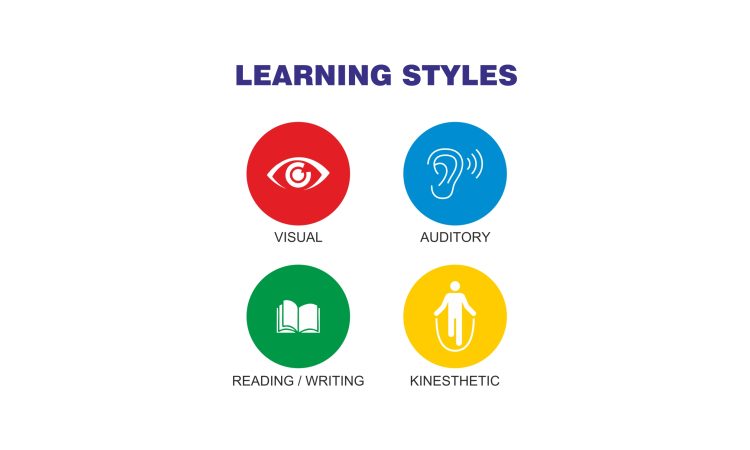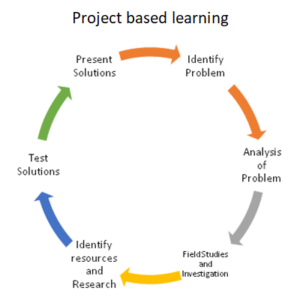Middle School Programme: Class VI to VIII (Age: 11 to 14 years):
TRIO World School’s Middle school programme serves as a strong bridge between preparatory years and secondary years. It is structured to meet, student’s varied intellectual and developmental need. The curriculum build on concepts and skills learnt in the preparatory years. Teaching involves innovation and implementation of activity based learning methods in the teaching and learning process. Middle School Curriculum. The middle school curriculum is designed specifically to meet the unique emotional and social needs of young teens encouraging them to broaden their interests. In middle school, students engage in skills such as critical thinking, communication skills, creativity, problem solving, perseverance, collaboration, information literacy, technology skills and digital literacy, media literacy, global awareness, self-direction, social skills, literacy skills, civic literacy, social responsibility, innovation skills and thinking skills.
It incorporates streamlined evaluation and review of a child’s performance through assessments.
Is more focussed towards experiential learning in the field of science, Mathematics, Art, Social Science and Humanities.
- Students are involved in learning activities more often than mere listening
- Less emphasis is placed on transmitting information and more on developing student's skills.
- Students are involved in higher order thinking such as analysis, synthesis, and evaluation.
- Greater emphasis is placed on student's exploration on their own attitudes and values.
- Emphasize on conceptual understanding to promote deeper thinking about the subjects and concepts.
- Elements of Blooms Taxonomy is incorporated to meet different learning styles and preferences to elicit student engagement.
- Team activities and individual activities for collaborative learning.
- Projects and research work form an integral part of our learning process. They help in building personal and social responsibility.
- Exposure to regional, national, and global concepts to enhance critical thinking skills.
- Integrated Learning is a key component.
- Inquiry-based learning for holistic development
- A good mix of indoor and outdoor activities.

Lesson planning in the Middle School Programme
To support students, their learning experiences are planned as follows:
- Lesson plans are detailed and emphasize on conceptual understanding to promote deeper thinking about the subjects and concepts.
- All the elements of Blooms Taxonomy are incorporated to meet different learning styles and preferences to elicit student engagement.
- Striking a good balance of scholastic, extension, and engagement activities each day.
- A healthy teacher student ratio. Optimal Class strength of maximum of 25- 26 students only,
- Team activities and individual activities are planned to achieve Collaborative Learning.
- Projects and research work forms an integral part of our learning process. They help in building personal and social responsibility. It enhances their planning, critical thinking, reasoning, and creativity. Helps build strong communication skills, both for interpersonal and presentation needs. Helps them visualise and make right decisions. Helps them choose the most appropriate digital tool for the task.
- Exposure to regional and local concepts too to think and analyse global challenges.
- Integrated Learning is an integral component. It enables children to integrate knowledge across subjects, apply, explore, and evaluate the concept through various individual and team activities.
- Periodical Assessment to gauge understanding
- Assessment pattern is divided into Formative and Summative Assessments.
- Formative Assessmentsare mainly taken in the form of role plays, team activities and discussions. Here the feedback is given on a regular basis to enhance learners understanding.
Summative Assessments are conducted periodically to check the students class level competency.
- Inquiry-based learning for holistic development
- A good mix of indoor and outdoor activities. Indoor activities like Chess and Carrom, outdoor sports such as Football, Cricket, Basketball form an important element of outdoor activities. Students receive professional training and are encouraged to take part in various national level and inter School Competition. Our school is also a host to multiple CISCE sports events.
At TRIO, we help students to build a sense of intellect and emotional stability before moving up into high school.
Middle School programme:
Library Programme
The ICSE requires students to extend their bank of knowledge beyond classroom learning.
Our library is well equipped with books that cater to readers functioning at different levels. Our library has a vast reserve of fictional texts ranging from fables, abridged and adapted versions of classic novels (for young readers), biographies of great personalities to full-fledged. classics and contemporary books as well. Non-fictional texts on science, arts, and humanities. Activities such as Cross Curricular Research initiates integrated learning and enables our students to apply the knowledge gained in other subjects and motivate our young learners to do better.
Science Labs:
There are individual laboratories for each of the streams in Science — Physics, Chemistry, and Biology
Computer Lab:
The Computer Lab at TRIO aims to provide access to computing devices and essential skills to enhance technical knowledge and its application.
Bookflix and Trueflix
A fun way for early readers to engage with delightful stories and the most interesting non-fiction e-books.
These programmes reinforce reading skills that includes fluency, vocabulary and reading comprehension. They include educational games and read along options with narrated text. The programmes help students to enhance their reading and literary skills for the future.
Field Trips for Class VI to VIII:
Out bound trips for middle school students of ICSE at TRIO improves critical thinking skills. It gives children a hands-on experience of the concepts taught.
- Helps them explore and understand better.
- Educational excursions conducted by schools offers children first-hand learning experience where they come across with ample of educational enrichment.
- Field trips are one of the best ways to promote team spirit over several fun filled knowledgeable activities.
Skating:
Skating can help improve a child’s balance and coordination. It is also a great source of exercise, burning calories and improving cardiovascular health. Skating can also help build muscle strength and flexibility.
Yoga
Yoga techniques provide improved attention in studies, better stamina and co-ordination for sports and a heightened awareness and balanced attitude for social activity.
Martial Arts is taught for self-defence
The self-defence curriculum at TRIO is planned to enable students to become more confident and peaceful, which leads to improvement in their overall behaviour. It encourages discipline, and positive behaviours and habits such as exercise, self-control and patience.
Music:
Music helps to break the monotony and help students relieve stress. TRIO World School is equipped with a full-fledged music room complete with all latest musical equipment to help our ICSE students become musically active. Our curriculum includes both Western and Indian Music.
Art:
TRIO’s Art Programme develops creative expression using different mediums. It encourages students :
- To acquire a knowledge of artistic terms, facts, concepts, theories and principles in drawing and painting, i.e., imagination, creativity, expression, aesthetic sense, organisation, observation, and interest.
- To develop an interest in the world of art.
- To develop an artistic attitude and values through the study of art.
- To acquire skills in observations, handling tools and drawing illustrations.
The VARK learning styles model
The VARK model also describes two kinds of learners:
Type one learners: Those who can switch between learning styles as required
Type two learners: Those who have a primary mode of learning

Project based learning
TRIO’s ICSE curriculum implementation incorporates Project Based Learning (PBL). PBL allows students to experience and learn real-world concepts by engaging in a variety of projects. PBL can be investigative, problem-based or creative.

